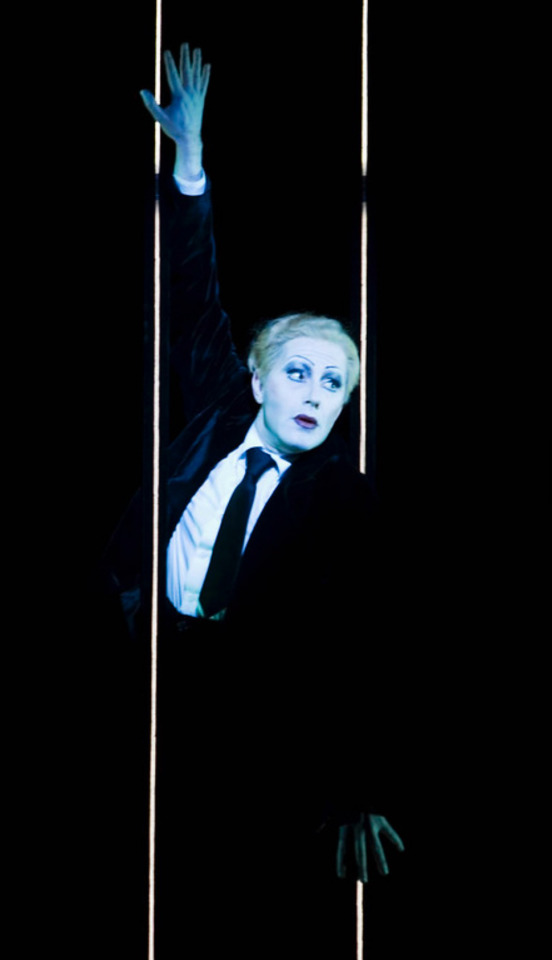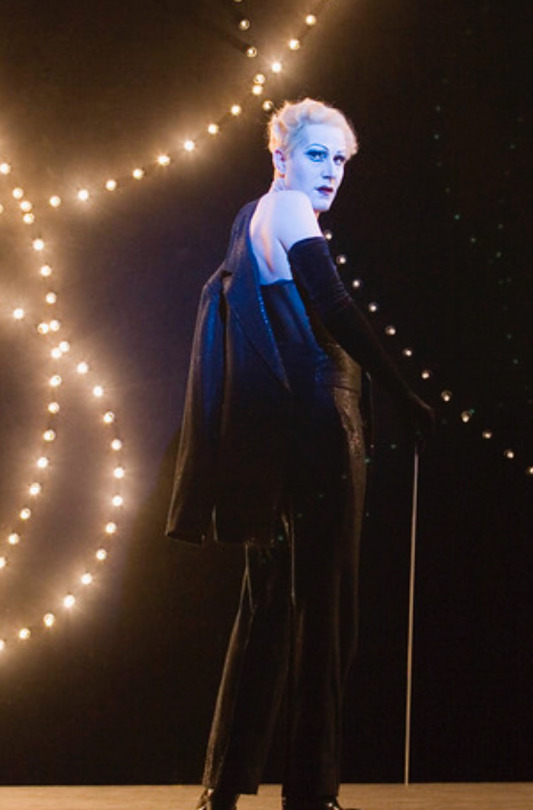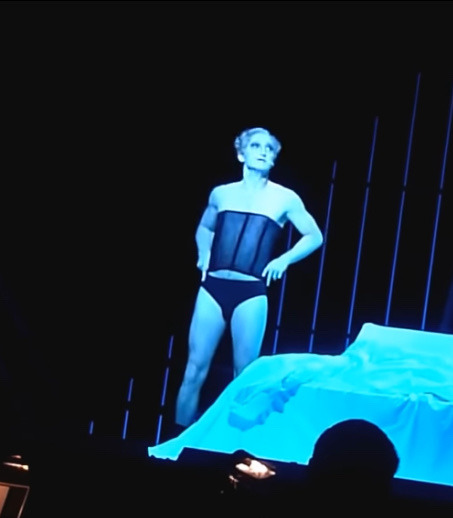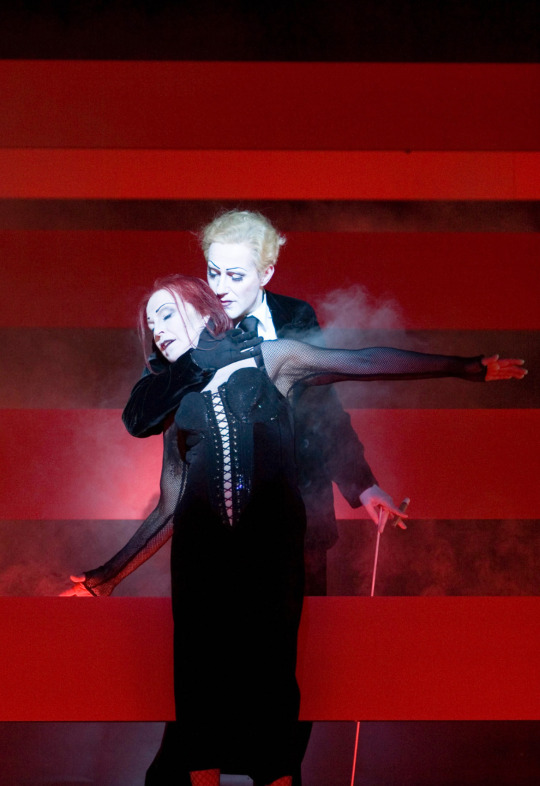#mackie messer
Explore tagged Tumblr posts
Text

Caterina Valente - Mackie Messer 1969
youtube
10 notes
·
View notes
Text
*rewatches the Threepenny Opera irl*
Me: better watch more adaptions…
And I Ooh- ✨😳








#I went in for a school project and now I feel used#don’t mess with my feelings like this Wilsonnn#die dreigroschenoper#Berlin cast#Robert Wilson#Mike the knife#more like Mike the twink#mackie messer#Stefan Kurt#more like Gösta Ekman#I’m very much bi and genderqueer thanks
16 notes
·
View notes
Text
A week ago, I went and saw my first opera. It was very good to the extent that it has taken over my music listening and made me start learning german again.
Ja, der Haifisch, sehr der hat Zähne!
Poor Mackie Messer... At least he has a £10,000 pension and is now a member of royalty and definitely got rescued.
8 notes
·
View notes
Video
Die Dreigroschenoper - Die Moritat von Mackie Messer (akustisches Cover ...
#youtube#mack the knife#mackie messer#die dreigroschenoper#kurt weill#bertolt brecht#cover#akustik#piano#knistelfitz#musikvideo
2 notes
·
View notes
Text

“I Vish I Ver Mackie Messer’s Girl” 2023
#collage#mackie messer#mack the knife#the cabinet of dr. caligari#Otto Dix#art history#toulouse lautrec#267#weimar republic#1920s berlin#queer art#queer
4 notes
·
View notes
Text
youtube
0 notes
Text
"Mack the knife" - Bobby Darin
1959 Music: Kurt Weill; lyric: Bertolt Brecht, translated by Marc Blitzenstein
Number four in Let's Do It, my personal fifty favourite singles from 1954-76. Gets the Elf, a bonus 11th mark.
Die Dreigroschenoper is a tale of Macheath "Mackie" Messer, a knife-wielding criminal of the London underworld. He's a complete anti-hero, saved from public execution by a deus ex machina. The show's overture is "Die Moritat von Mackie Messer", sung in the production by a street singer before Mackie appears on stage.
The show - combining elements of opera, musical, and a jazz performance - and song were a huge success in 1920s Germany, where Weill and Brecht became heroes of the left. Their worldview is reflected in the piece: it portrays a capitalist scheme within the world of beggars, demonstrates the themes of estrangement and self-contradictory gesture.
Translated into English, The Threeppeny Opera flopped on Broadway in 1933. German culture fell out of fashion in the following years, and nobody tried again until an off-Broadway revival in 1954. For the opening number, Marc Blitzenstein took liberties with the text, removing some of Mackie's gorier crimes entirely, and adding a new verse to introduce the women in his play.
youtube
A hit show of 1954 will spawn hit singles, and Louis Armstrong's version is one of the strongest swing jazz versions. For this list, I'm going with Bobby Darin's interpretation, recorded for his 1958 standards album That's All. Darin had already featured "Mack the knife" in his live act, and approached the song with an extra bounce and verve, perhaps dulling some of the fear Mackie's meant to strike into our heart.
For me, the highlight is the increasing tone of the song. Darin goes up by a semitone in every verse, spiralling into excitement, racheting up the fear and the tension with every turn.

Bobby Darin had already established his credentials as a singer, "Splish splash" and "Dream lover" helped establish a lighter brand of rock and roll music, subsequently known as "bubblegum pop". Ill health ended his life in 1973.
#bobby darin#mack the knife#bertholt brecht#kurt weill#marc blitzenstein#mackie messer#the threepenny opera#swing music#standard#1958#popular song
1 note
·
View note
Text

First cut is the deepest Festival2!




Schrieb u.a. die 'Moritat von/an Mackie Messer' ('Dreigroschen-Opa/Oper')







P(r)o-... . das 'maennliche Fass'.










,So don't go breakin' my hart!!' 'Bye-bye und Winke-Winke!'

... und Warmes! *Koerperwaerme 'Eiskalt erwischt!' /erfrischt! 'Auf ganz eiskalte Tour!'
'Bye! Winke Winke!'







#Maniacs#1. Mai#Wolfsburg#Ruten#der Schiffssteward#the rod#males men#Weil als Redner#Niedersachsen Landtag#Kurt Weil (Theater)#Brecht#Oper#grosse Opernerfolge#Texter#Brecht in den Usa#Mackie Messer
0 notes
Video
youtube
(via Die Moritat von Mackie Messer - Bertolt Brecht (1929)
#youtube#Die Dreigroschenoper#Die Moritat von Mackie Messer#Bertolt Brecht#mack the knife#vintage#german#original version
29 notes
·
View notes
Text
balzac 🤝 brecht 🤝 john gay probably
#remember that post about vautrin becoming a cop and how that works as fine social satire but is annoying for his chara development?#well i just watched pabst’s version of 3 penny opera x) it’s better bc mackie messer is less lovable than vautrin (?#if you can call him lovable lmaoo#(also still busy brain is fried etc. so not really checking my notes but i am not ignoring any of u ! 💗)
3 notes
·
View notes
Text
Call me Mackie the way I kill people with a knife
#I've been thinking this over and over for like the last half hour so I'm just gonna share it to get it out of my head#for whatever reason I default to Mackie Messer instead of Mack the Knife despite not being German#but to be clear it's literally identical
1 note
·
View note
Text
Mackie Messer <33








#I’m normal about this#istg#Stefan Kurt#mackie messer#Mike the knife#die dreigroschenoper#he’s slutty af
11 notes
·
View notes
Video
youtube
Kurt Weill/Bertolt Brecht - Die Moritat von Mackie Messer ("Dreigroschen...
#youtube#mackie messer#mack the knife#dreigroschenoper#three penny opera#bertolt brecht#kurt weill#haifisch zähne#cover#coversong#knistelfitz#piano#musicvideo#livemusic
0 notes
Text

Louis Armstrong and Lotte Lenya recording “Moritat von Mackie Messer (Mack the Knife)” in 1956, from Kurt Weill’s "The Three Penny Opera.”
67 notes
·
View notes
Text
Descriptions & Propaganda
Mack the Knife (Original title: "Die Moritat von Mackie Messer")
Composed by Kurt Weill , with lyrics by Bertolt Brecht (English lyrics by Marc Blitzstein )
Notable versions: Louis Armstrong (x), Ella Fiztgerald (x), Bobby Darin (x)
Propaganda:
Originally a last-minute addition to the German opera "Die Dreigroschenoper", it was translated into English in 1954 by Marc Blitzstein (it was translated beforehand in 1933, but that run of the opera was unsuccessful, and the 1954 translation is the base for most modern recordings). The following year, Louis Armstrong recorded a version of it in a swing style, and soon after Bobby Darin released (arguably) the most popular recording of the song, solidifying the murder-ballad as a jazz standard.
Additional neat little bit of information (cw mention of rape and arson): The 1954 translation is censored from the German version, as it removes the verses detailing rape and arson, and adds a verse naming several victims of Macheath. Lotte Lenya was the original star of the opera, and is mentioned by name in Louis Armstrong's recording during this additional verse.
St. James' Infirmary
Traditional
Notable versions: Louis Armstrong (x), Cab Calloway (x), Artie Shaw (x)
Propaganda:
i love how this song starts as a lament and then switches on a dime to such a cool, proud, almost bragging defiance of death. and of course that trumpet!! that trombone!!
imo this song exemplifies the rich tapestry of popular music and the links between the jazz standards, the blues, and the english, irish, and appalachian folk traditions. people sort of fight over whether this song is influenced by the unfortunate rake/rakes progress/young trooper cut down in his prime/etc., (musicologist a. l. lloyd’s theory) or not- there’s a whole book about it, “i went down to the st. james infirmary” by robert harwood.
but none of that really matters. if you love the blues and you love folk music this song is like a familiar hug, full of the themes and motifs you recognize but maybe can’t quite pin down. the mysterious origins are part of the fun. extra propaganda: if you know/love/have ever listened to “blind willie mctell” by bob dylan, this song is the father.
youtube
i like the way this one sounds but i also think it's historically/anthropologically pretty cool... it's part of the lineage of "the unfortunate rake" which also spawned popular folk songs like "streets of laredo" and possibly "house of the rising sun" (debated among experts but possible), but this one unlike those others was taken up by jazz artists starting in the 1920s and eventually came to be regarded as a jazz standard. fascinating stuff!
14 notes
·
View notes
Text


38 notes
·
View notes